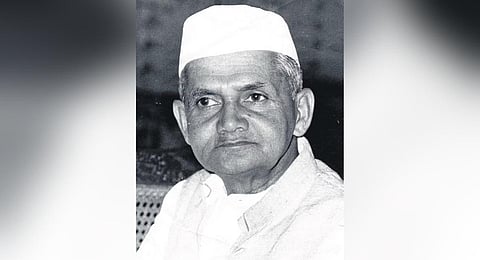

I have long been curious to learn why many executives struggle hard, work diligently to rise, and, once they reach the pinnacle, falter. Arrogance can be one reason. Another reason can be that they lose touch with the realities of the ground situation.
Why do the talented or top leaders tend to lose touch with reality? There are many possible reasons and all of them are plausible. Upcoming leaders tend to become bound by office routines and meetings. They are likely to be surrounded by people who wish to please them and whisper good things about them. This inadvertently creates a bubble chamber in which leaders end up residing in. Since they constantly receive positive signals about their leadership, they may become self-obsessed and then selectively listen to positive news and inadvertently screen out criticism.
In other words, the very strength that catapulted them to the top becomes a weakness once they are at the top. Being aware that a top position can cause any great leader to lose touch with ground realities is an important leadership learning. Leaders are too often portrayed in writings and movies as those who are forceful demagogues who ‘lead from the front’.
I came across a new book authored by my former Tata colleague, Ravi Kant, who retired as the Vice Chairman and CEO of Tata Motors after successfully leading the company through rather turbulent times. I have known Ravi since our college days and he has always struck me as a low-profile, quiet achiever, quite a contrarian to the loud, flashy leadership style of those who get featured on magazine covers. Yet he was regarded as an effective leader throughout his career in Hawkins, Titan, Lohia Machinery and Tata Motors. In line with his personality, the book he co-authored is titled Leading from the Back to Achieve the Impossible (Penguin India, 2023). This article is not about Ravi or his book but what he writes about how leaders can keep their feet on the ground and their heads in the air. I refer to his book principally because he has based the book on real experiences, not on fluffy theories or inspirational oratory.
The book sets out the principles of quiet leadership or leading from the back through the story of a bright leader, Shiv Kundra. Through great accomplishments and encomiums from his company leaders, he rises right to the top. Suddenly he falters. Why? He cannot let go. He micromanages his colleagues to the point of utterly frustrating them. The directors of the company are bewildered. On the one hand, they value Shiv Kundra as an accomplished leader, and on the other hand, he becomes an enemy of his own career. Hence, they encourage him to reflect by making him explore three questions. First, how should I be? Second, how should I deal with the team? Third, how should I deal with the task? The second question is of direct relevance to the subject of this column. Ravi Kant argues that you stay grounded through relations with people—by trusting them, collaborating with them, and leveraging their strengths.
That sounds pretty straightforward, but how can an upcoming leader practice these when the pressures of change, work schedules and stiff targets make leadership life peripatetic and stressful? The book tells the reader a few things, but I can recall an old Korean proverb, “You must slow down precisely when you have to reach faster.”
Ever since I joined Hindustan Lever as a young trainee, I observed that the CEO would earmark eight to ten days every year for what used to be euphemistically called ‘field visit day’. On those days, the CEO would visit the market or the factory to interact, in my words, “with the least powerful people in the organisation”: distributors, salesmen, factory workers and supervisors, for example. And that day would be spent without any of the intervening layers present. In that way, the CEO would stumble upon ground realities through the ‘truth-telling’ of frontline employees and associates. In the later part of my own career, I practised the same approach. I found it to be a super-effective way of staying grounded.
Also read: Hold up a mirror to tame arrogant leaders
As you can see, this is no rocket science but the essence of simplicity. To recall Justice Oliver Wendell Holmes’s words, “For the simplicity on this side of complexity, I wouldn’t give you a fig. But for the simplicity on the other side of complexity, for that I would give you anything that I have.” And India’s simplest prime minister since independence demonstrated this virtue.
In the early 1960s, Lal Bahadur Shastri was told a lot about Verghese Kurien’s promising Operation Flood. He decided to visit Anand and see for himself but demanded that he would do so incognito. This simple request became very complex for the protocol department, security department and concerned ministries. Somehow, they solved the relevant problems and the prime minister stayed overnight in an unsuspecting farmer’s house, discussing animal husbandry and milk economics. Imagine the farmer’s shock when he later found out who his visitor was.
This field visit enabled undiluted government support for the Amul programme. After over fifty years, India can be proud that a milk-deficit nation has become a milk-surplus nation—thanks to grounded leadership and leading from the back on an important national priority.
R Gopalakrishnan
Author and business commentator.
His fifty-year professional career was spent in Hindustan Unilever and Tata Group
(rgopal@themindworks.me)